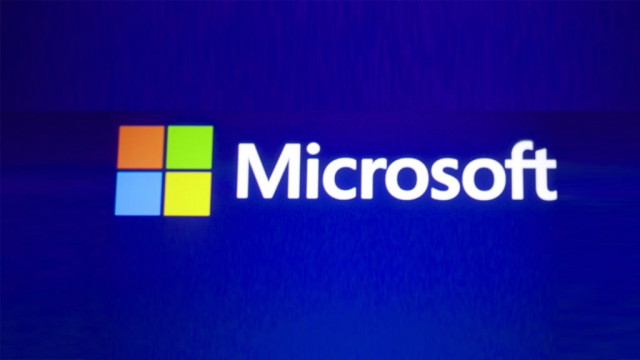Pakistan among top three contributors in NEPA, Microsoft
Microsoft official foresees revenue growth in Pakistan.

“Pakistan is one of the top three countries [in NEPA] for Microsoft in terms of contribution to the business,” said Aamer Kaleem. PHOTO: AFP
Pakistan is among the top three contributors to Microsoft’s business in North Africa Eastern Mediterranean and Pakistan (NEPA) – one of 13 business regions for the company worldwide – according to a top official of the Washington-based technology giant.
“Pakistan is one of the top three countries [in NEPA] for Microsoft in terms of contribution to the business,” said Aamer Kaleem who is Chief Technology Officer (CTO) for Worldwide Communications Sales Team at Microsoft Corp and based in Chicago.
The CTO stated this during an interview with The Express Tribune earlier this month. He was in Karachi to address Pakistan’s corporate customers in an event about unified communications, which also featured their flagship enterprise solution ‘Lync’.
Kaleem’s visit endorses the company’s official stance that Pakistan is a growing market for the tech giant with a lot of business opportunities.
It is perhaps for the same reason that MS sent to the country the man who has global responsibilities to drive revenue and deployments for Lync business – the CTO along with his local team briefed corporate customers about worldwide enterprise communication trends and discussed how customers in Pakistan could benefit from Microsoft Lync.
Besides contribution to the business, there are several other trends that are driving the company’s interest in the market.
In the NEPA region, a cluster of up to 10 countries, Pakistan ranks very high in technology adoption and in solutions applied by the customers, Kaleem said.
“Pakistan is a new emerging market with a huge potential,” Kaleem said. Though it may sound strange but sometimes people here get the latest products first than the mature market, he added. “Pakistani customers are more nimble; they are more adaptive to technology [compared to the regional markets].”
Talking about market potential for Lync, Kaleem said Pakistanis are very hungry to consume more in communications “just like they have used WhatsApp and Viber”. In terms of enterprise, Lync is no different, he said drawing a contrast with such social media apps.
The CTO’s optimism about the Pakistani market is understandable as their enterprise solution is already getting some attention.
“In Pakistan, a majority of the top tier banks are using Lync,” Kaleem said. The customers who have adopted Lync as a collaboration platform include banks, telecommunication companies and educational institutes, he said – the customers are ready to take communication to the next level now, he said. For example, he said a provincial government in Pakistan was going for citizen connection and is using these communication platforms from Microsoft. “I have seen this happen in a developed country like Canada and USA,” Kaleem said.
Explaining the technology, Kaleem said Lync has multiple elements. “It has software element offering software to software or PC to PC collaboration and then there is telephony system, which is new to market,” he said. The purpose of this event was to introduce the telephony part to the customers, he said.
The software giant launched Lync in 2007 and rebranded it three years ago. With the acquisition of Skype, Microsoft now has 350 million active users. While Skype is a consumer product, the company is branding Lync as its enterprise product.
Lync can be used for the emergency services management, Kaleem said responding to the question how the country can benefit from the product. Secondly, he said, it can be used for good governance. Lync offers consumer solutions, which can benefit politicians, social institutions, healthcare institutions, education sector and law enforcement agencies, he said – these institutions can provide useful information to the public using this platform.
While the country remains on the radar of tech giants like MS for it forms a large customer base for technology products, its talented workforce also serves as a base to export bright minds these organizations.
“In Microsoft, there are a lot of Pakistanis on senior positions,” Kaleem said. “That’s mainly because they have proven their worth, and not because they are Pakistanis.”
Published in The Express Tribune, March 1st, 2014.
Like Business on Facebook, follow @TribuneBiz on Twitter to stay informed and join in the conversation.


















COMMENTS
Comments are moderated and generally will be posted if they are on-topic and not abusive.
For more information, please see our Comments FAQ